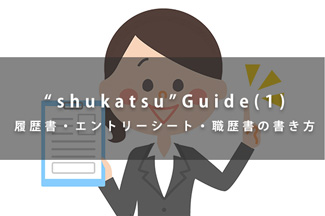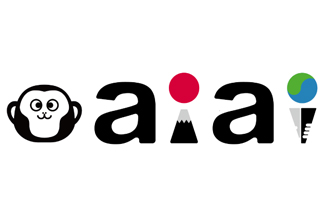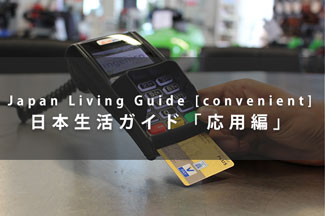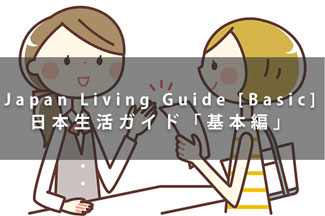【就職活動は事前準備が大切!】就職活動ガイド➂「業界研究・職種研究・自己分析編」

- CONTENTS -
1、仕事を決めるうえで大切なこと
仕事をした経験がない学生は、いきなり仕事を探すといっても難しいものです。
子供のころからの夢があったり、やりたいことがはっきり決まっている人はいいですが、そうでない人はこれから決めなければなりません。
そして、日本で働く外国人の方にとって、永住権などが無い限り、どの学校でなにを学ぶかで選択肢が限られてきます。日本で働こう、そのために学校へ行こう、と考えている人は、学校を決める時点で考え始めたほうが良いかもしれません。
日本では学生が仕事を決めるための便利な考え方として、「業界研究」「職種研究」「自己分析」があります。
流れとしては、
1、業界研究:日本にはどのような業界があるかを知る。
2、職種研究:日本にはどのような仕事があるかを知る。
3、自己分析:自分の強みを知る。
行う順番は特に決まっていませんが、1、2、3の順番が行いやすいでしょう。
例えば、1・2を行って、
・日本の車が好きで日本に来たから、「自動車業界」
・人と話すことが好きだから「営業職」
と、決めたとしたら、「自動車業界」×「営業職」に必要なスキルは何かを調べます。
自分で調べるのは難しいので、一度どこか会社説明会などに行き、話を聞いてくるのが良いでしょう。
・例えば「細かいことを間違えずに、素早く対応し、相手の話をきちんと聞ける」
というスキルが必要と分かれば、自己分析で出した自分の強みと重なる部分をアピールポイントとします。
特に興味のある業界や仕事が分からない場合は、先に自己分析を行い、自分の強みを明確にします。
そして、どの業界のどの仕事ならそれが活かせそうかを逆に探す、という方法もあります。
次の項目でそれぞれを細かく見ていきましょう。
Students who have never worked before may find it difficult to find a job right away.
If you have a dream from your childhood or you have a clear idea of what you want to do, that's fine, but if you don't, you will have to make a decision from now on.
Also, for foreigners who are working in Japan, unless you have a permanent residence permit, your choices are limited by what to study and which school to attend. If you are thinking of working in Japan and going to school in Japan, you should start thinking about it when you decide on a school.
There are "industry research," "job research," and "self-analysis.
The flow is.
1、Industry research: find out what kind of industry exists in Japan
2、Occupational research: Find out what kind of jobs are available in Japan.
3、Self-analysis: Find out what your strengths are.
There is no specific order in which these should be done, but I think it is easier to do 1, 2, and 3 in that order.
For example,
I came to Japan because I love Japanese cars and I want to work in the automotive industry.
I like talking to people, so I want a sales job.
If you have decided that you want to work in the "automotive industry" and "sales", then you need to find out what skills you need for the "automotive industry" and "sales job".
It's difficult to find out on your own, so it's a good idea to go to a company information session and hear what they have to say.
For example, you should be able to respond quickly without making mistakes in details and listen to what the other person has to say.
If you know that you need to have the skills to be successful in a particular industry or job, then you can appeal to the areas that overlap with your strengths that you have identified in your self-assessment.
If you don't know what industry or job you are particularly interested in, you can conduct a self-assessment first to clarify your strengths.
You can also look for a job in which industry and in which industry you can make use of your strengths.
Let's take a closer look at each of these in the following sections.
Translated with www.DeepL.com/Translator (free version)
2、業界研究
まずは「業界研究」からです。
どんな業界もどんな職種も「人と接して、人に役に立つ」ものであり、「自分を成長させる」ものです。
ですから、どんなサービスや商品で、誰に、役に立つ仕事をしたいのか、そしてどんな力を身に付けたいのか、を知る必要があります。
日本では、細かい産業分類(さんぎょうぶんるい)がありますが、新卒採用において勉強する一般的な部類(ぶるい)は下記の通りです。
・メーカー
・サービス、インフラ
・商社(しょうしゃ)
・銀行、証券、保険、金融
・情報(広告・通信・マスコミ)
・百貨店、専門店、流通、小売
・IT、ソフトウェア、情報処理
そして、それぞれの業界ごとに、学ぶべき点は下記の点です。
・〇〇業界とは何か?
・〇〇業界の仕組み(他の業界などとの繋がり)
・〇〇業界の現状と今後の展望(てんぼう)(これから先伸びていきそうな業界であるのか)
・〇〇業界で活躍できる職種
(例)メーカーの場合
営業/生産管理/商品企画/研究開発/製造/宣伝広報/資材調達
・女性であれば〇〇業界の女性の活躍度合いや育休取得率など
普段から食べ物に気を使っているから、「食べ物」という商品で、
特に「子供の栄養」のために役に立ちたい。
自分として、「栄養について」や「栄養学」も学んでいきたい。
→ このように調べられたら、「ベビーや子供向け食品メーカー」を希望にすると良いでしょう。
次に行う事は、「ベビーや子供向け食品メーカー」でどんな仕事があるか、です。
また、なぜそのように考えるに至ったかの理由やエピソードも用意しておくと良いです。
The first step is "industry research".
Every industry and every type of job is something that will "treat people and help them" and will "develop you".
Therefore, you need to decide in what way and to whom you want to be useful and what skills you want to acquire. In order to find out in what way you want to be useful to others, you need to research the industry.
In Japan, there is a detailed industrial classification, but the following are the general categories you should study when hiring new graduates.
・Manufacturers
・Services and infrastructure
・Trading company
・Banking, securities, insurance and finance
・Information (advertising, communications, and mass media)
・Department stores, specialty stores, distribution and retail stores
・IT, software and information processing
And for each industry, here are the things you need to learn
・What is the XX industry?
・Structure of the XX industry (connections with other industries)
・Current status and future outlook for the XX industry (is this an industry that is likely to grow in the future?)
・Positions available in the XX industry
(Example: manufacturer)
Sales / Production Management / Product Planning / Research and Development / Manufacturing / Advertising / Public Relations / Procurement
・If you're a woman, the level of success of women in the industry and the rate of taking childcare leave
The next step is to get into researching the job titles within that category once you've decided that.
3、職種研究
次は職種研究です。
前のコラムのように、働きたい業界が決まった場合は、(「ベビー用食品メーカー」など)
ビザの関係があるため、選べる職種はあまり多くないので、迷わず決められるかもしれません。
もし、業界研究で働きたい業界が決められなかった人は、職種から決めてもよいでしょう。
ただし、就労ビザでは日本では働くことが難しい職種もありますので、ここでは外国人の方も多く活躍している職種を紹介します。
■営業・サービス販売系
・法人営業
・個人営業
・セールスエンジニア
・店舗販売(インバウンド向けが対象となるでしょう。)
・バイヤー(母国の製品の買い付けなど)
■事務系
・財務・経理
・人事
・広報
・マーケティング
・総務
・企画
・営業事務/一般事務
■技術系
・システムエンジニア
・プログラマー
・品質管理・生産管理
・研究開発
・施工管理
・設計
■専門職系
・弁護士
・公認会計士
・建築士
それぞれの職種に関して勉強すべき点は下記の通りです。
・何をするのか
・会社の中でどのような位置にあるのか
・具体的な1日の流れ
・仕事の目標・目的
・なるためには何が必要か
また、これは会社によって異なりますので、おおまかには調べて、あとは会社説明会などで聞いてみると良いでしょう。
The next step is to research the job titles. If you are not sure about the industry, you may want to start with the type of job you are looking for.
However, there are certain types of jobs that are difficult to work in Japan with a work visa, so we will introduce some types of jobs that many foreign nationals are working in.
■Sales and service sales
・Corporate Sales
・Personal Business
・Sales Engineer
・Store sales (likely to be for inbound customers)
・Buyers (e.g. buying products from their home country)
■Office work
・Finance and accounting
・Human Resources
・Public Relations
・Marketing
・General Affairs
・Planning
・Sales Office/General Office
■Technology
・System Engineer
・programmer
・Quality control and production control
・Research and Development
・Construction management
・Design
■Professionals
・Lawyers
・Certified Public Accountant
・Architect
Here's what you need to study about each position
・What do you do?
・What is your position in the company?
・Specific daily flow
・Work goals and objectives
・What is needed to become one?
Also, this varies from company to company, so it's a good idea to do some general research and then ask about it at company information sessions.
4、自己分析
次は自己分析です。自己分析の目的は自分の興味や自分のできることを整理することです。
自己分析で行うのは、
1、過去に頑張れたことを書き出してみる
2、頑張れたことについて、深く考えてみる。
・なぜ頑張ることができたのか
・それに取り組んだ課題や問題
・どのように問題や課題に取り組んだのか
・取り組んだ結果どうだったのか
・ぶつかった壁はあったか?それをどう乗り越えたか?
・その結果学んだことは何だったか
→ これは、面接にて直接アピール項目としてお話をすることができます。
3、共通するポイントはどんなことでしょうか?
それはどんな特徴でしょうか。
行動力・決断力・適応能力・創造力・分析力・協調性・リーダーシップ・コミュニケーション力・責任感・社交性・忍耐力・負けずきらい・努力家など。
これが長所になります。
4、2から、どんな環境だと頑張ることが楽しいと感じるでしょうか?
〇〇な環境、というものを出してみましょう。
3と4を合わせると、自分がどんな仕事をするのが楽しくて、どんな長所が生かせるか、がわかります。両方が合致する業種・職種を選ぶと良いでしょう。
The next step is self-analysis. The purpose of self-analysis is to organize your interests and what you are capable of doing.
Self-analysis is done by
1, Write down the things you've done well in the past.
2. Think deeply about what you were able to do well.
・Why were you able to do your best?
・Issues and problems addressed
・How did you tackle the problem or issue?
・What were the results of your efforts?
・Did you run into any walls? How did you get over that?
・What did we learn as a result?
→ This can be discussed directly at the interview as an appeal item.
3. What are the common points?
・What traits are those?
Action, determination, adaptability, creativity, analytical skills, cooperation, leadership, communication skills, responsibility, sociability, perseverance, competitive spirit, hardworking, etc.
→These are the strengths.
4. From 2, what kind of environment would you find it fun to work hard in?
Put 3 and 4 together and you'll find out what kind of work you enjoy doing and what strengths you can use. You should choose an industry or job category that matches both.







